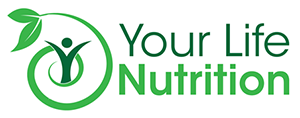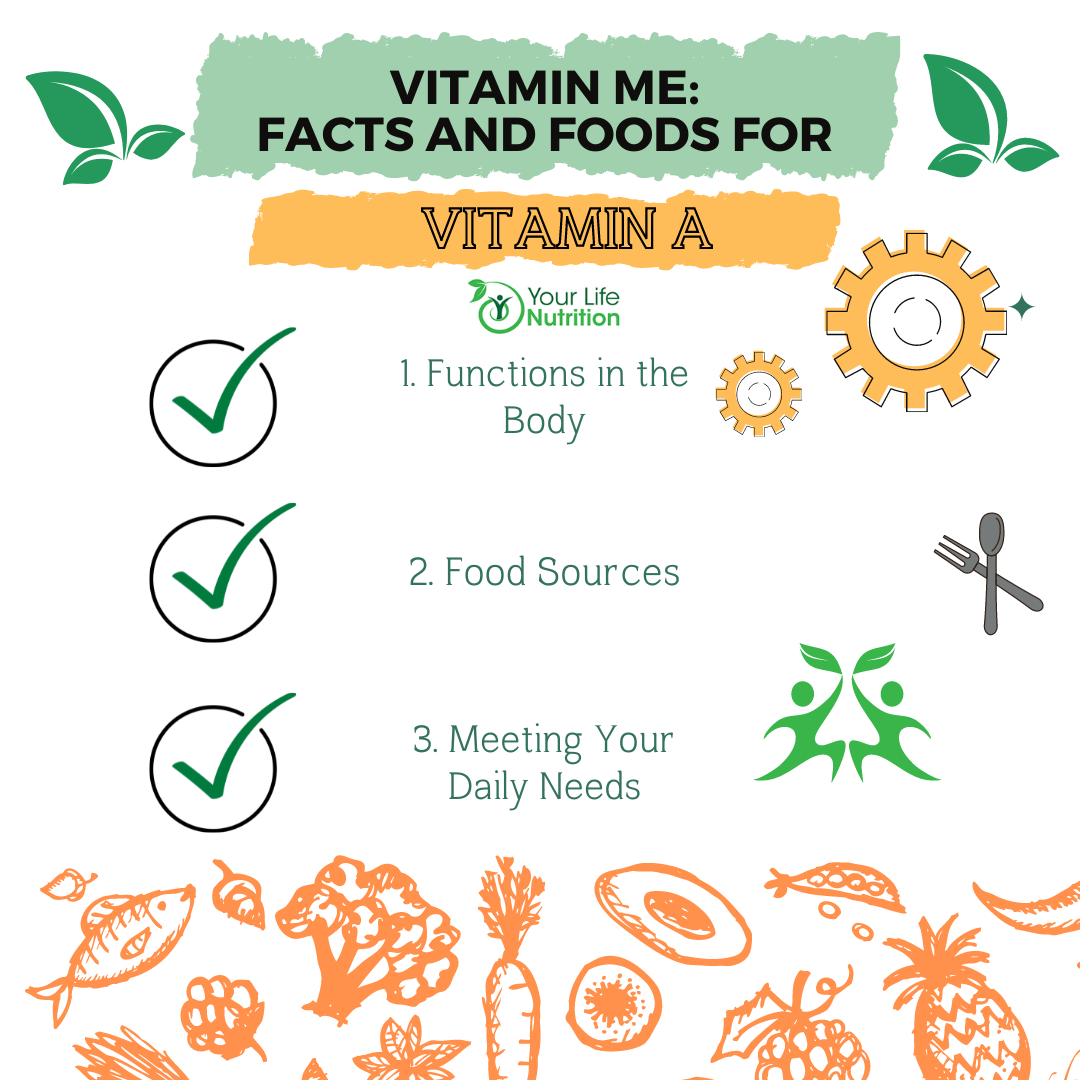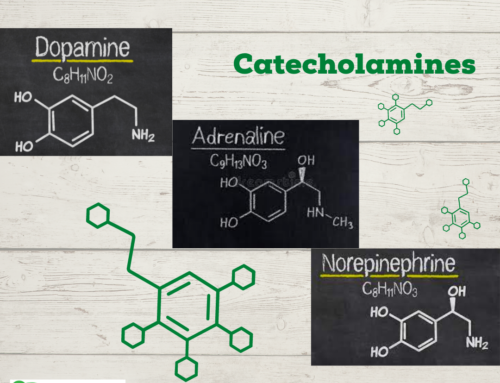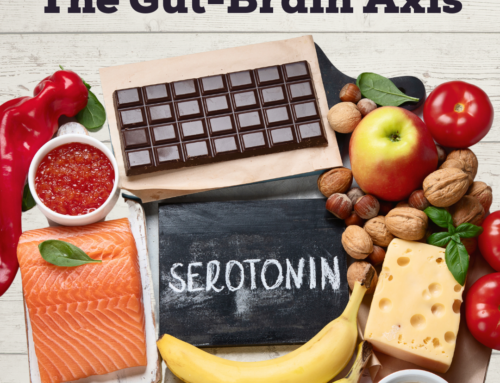Have you ever heard that eating carrots will help you see better? Why do you think that is? Is this only true for carrots? Will you have impaired vision if you do not eat carrots every single day? Of course, the answer to this is no! Have no fear if you absolutely hate carrots, they are not the only way to help improve your eye and vision health. The thing that makes carrots so beneficial for your vision is a little nutrient it harbors called vitamin A. And thankfully, carrots are not the only source of this special and important little vitamin.
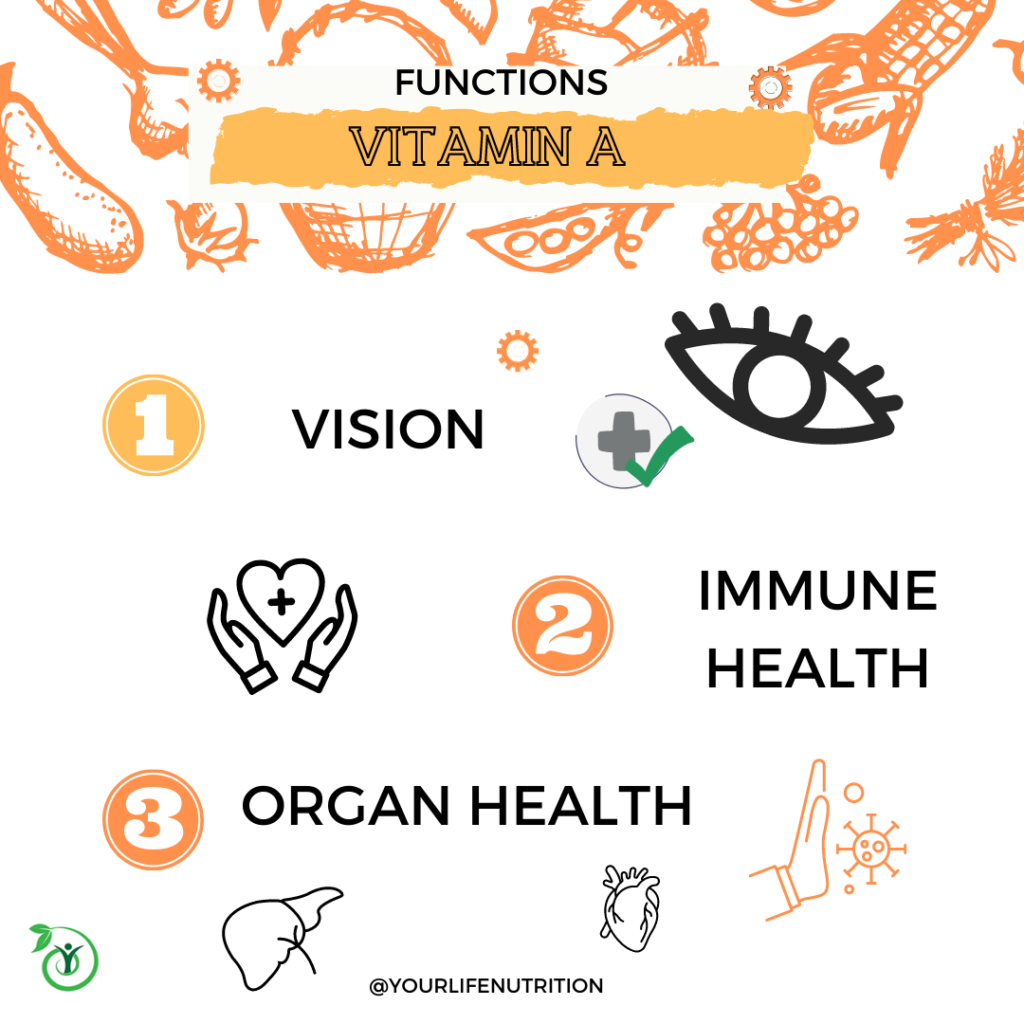
While this vitamin is a major contributing nutrient to the process absorbing light and keeping our cornea in good repair (that clear portion over your eye that helps to protect it and bend light as we see it), it is also essential for many other body processes.1 This includes supporting cell growth and differentiation, proper growth and development, immune function, skin and bone formation, red blood cell formation, and maintaining healthy formation and maintenance of organs like the heart, lungs, and kidneys.1
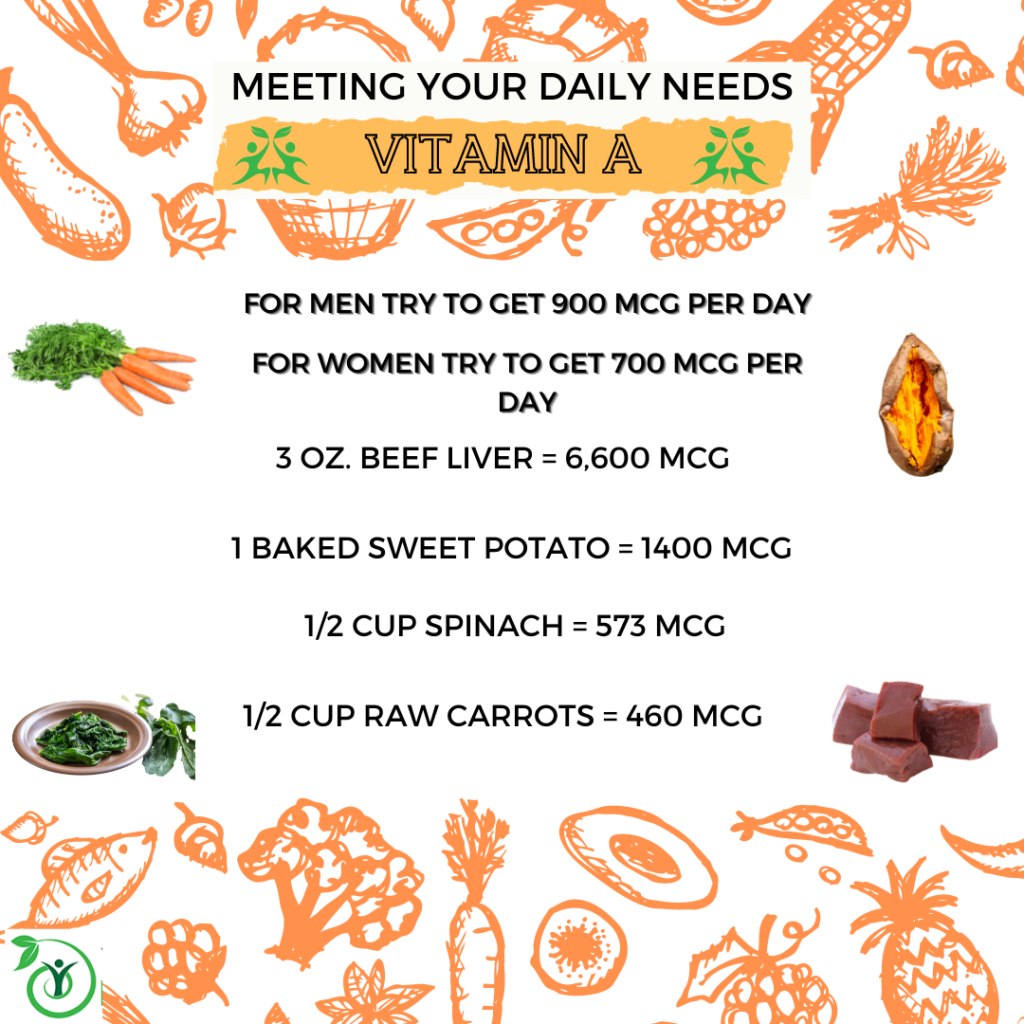
There are actually two different forms of vitamin A that we can get from the diet.1 The first is preformed vitamin A and we can get this from animal sources like eggs, dairy, fish, liver, and meat.1 The second is provitamin A and this comes from plant sources like carrots, cantaloupe and squash.1 When we eat these foods, we are not consuming the vitamin A that our body uses for functions, rather we are consuming a pigment that must be converted into an active form in order for our bodies to use it.1 The Food and Nutrition Board (FNB) created Dietary Reference Intakes (DRI) which are the recommended intakes for the average healthy individual to get of each nutrient every day.1 Here are a few examples of how much of these vitamin A rich foods you would need to eat a day to reach these recommendations:
- 1 cup raw carrots = 102%
- 2/3 of a baked sweet potato = 104%
- 1 cup of Frozen/boiled spinach = 128%
- 1 oz Beef Liver = 243%
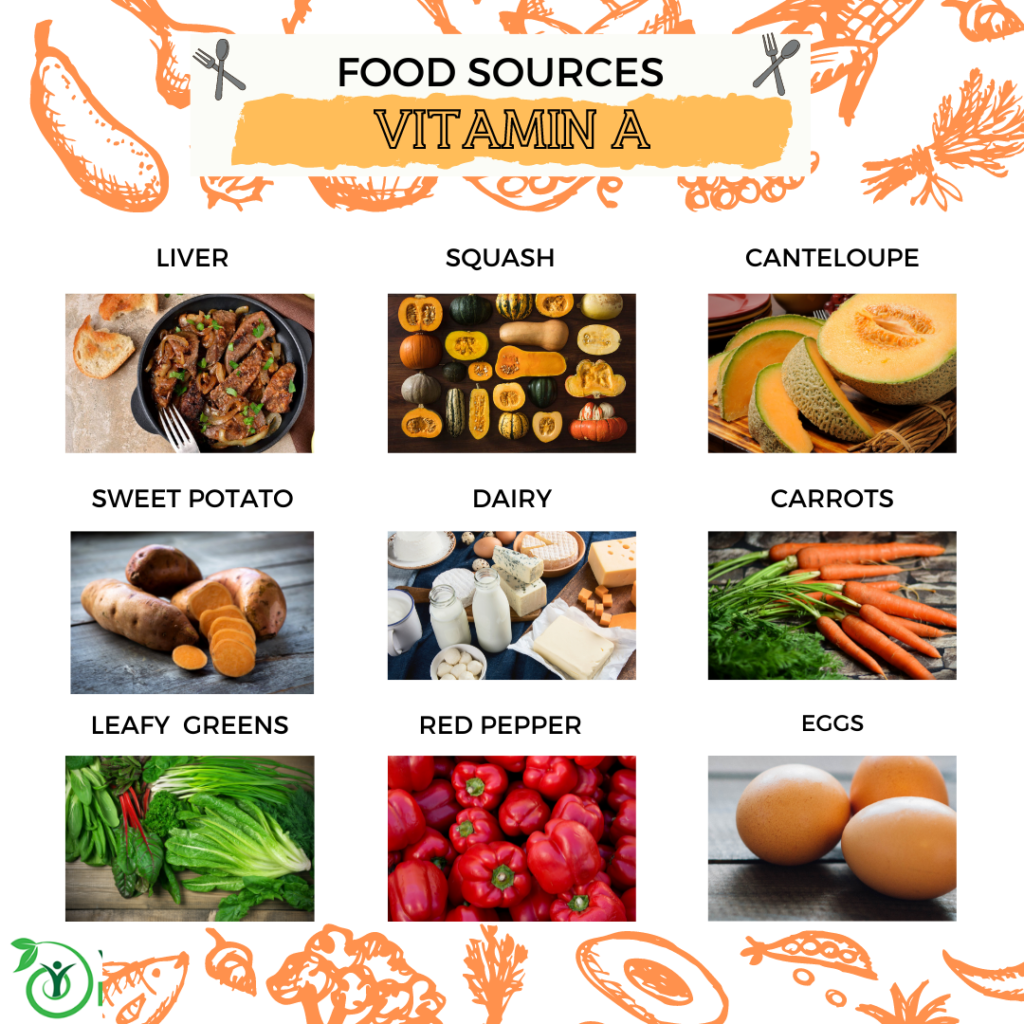
Hitting your daily dose of vitamin A is a lot easier than you may have thought! Here is an additional list of foods higher in vitamin A. Try to incorporate at least one source to your diet every day to maintain healthy eye, organ, immune, skin, bone, and cell health:
- Cantaloupe
- Carrots
- Dairy Products
- Eggs
- Green leafy vegetables
- Pumpkin
- Red pepper
- Sweet potato
References:
- Office of dietary supplements – vitamin A. NIH Office of Dietary Supplements. https://ods.od.nih.gov/factsheets/VitaminA-HealthProfessional/. Accessed January 20, 2022.
Post created by Your Life Nutrition intern from the University of Akron: Michaela Campbell

